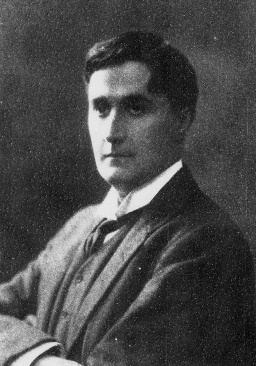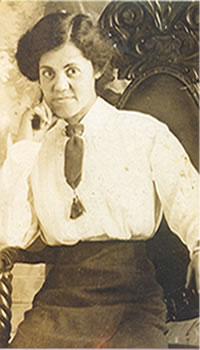"Land of Hope and Glory" is a British patriotic song, with music by Edward Elgar written in 1901 and lyrics by A. C. Benson later added in 1902.
George Orwell's 1945 allegorical novel Animal Farm contains various anthems adopted by the eponymous farm, most notably the original anthem "Beasts of England" and its later replacement "Comrade Napoleon".

"Hail! Minnesota" is the regional anthem of the U.S. state of Minnesota. A variation is used as a school song of the University of Minnesota. It originated at the university in the early 20th century when some students decided to honor their graduating class with a new song. In 1945, the Minnesota State Legislature approved the tune as the state song.

Fitz Hugh Ludlow, sometimes seen as Fitzhugh Ludlow, was an American author, journalist, and explorer; best known for his autobiographical book The Hasheesh Eater (1857).
"Illinois" is the regional anthem of the U.S. state of Illinois. Written in the early 1890s by Civil War veteran Charles H. Chamberlain, the verses were set to the tune of "Baby Mine," a popular song composed in 1870 by Archibald Johnston. "Illinois" became the state song by an act of the 54th Illinois General Assembly in 1925.
"Fair Harvard" is the alma mater of Harvard University. Written by the Reverend Samuel Gilman of the class of 1811 for the university's 200th anniversary in 1836, it bids the school an affectionate farewell. Of its four verses, the first and fourth are traditionally sung and the second and third omitted.

"Carmen Ohio" is the oldest school song still used by Ohio State University. The song was composed by freshman athlete and Men's Glee Club member Fred Cornell in 1902 or 1903. According to some accounts, he composed it on the train ride home from Ann Arbor, Michigan after Ohio State suffered an 86-0 loss to the Michigan Wolverines. The song was set to the tune of "Spanish Hymn", or "Spanish Chant", and the Men's Glee Club first performed it in 1903; however, it did not gain popularity until after its publication in The Lantern on October 10, 1906. At the following Ohio State-Michigan football game on October 20, 1906, "Carmen Ohio" was published in the program. In 1915, Cornell recalled that he wrote the song in 1903 at the request of the Men's Glee Club, and other family members later stated that the train story might be an exaggeration or outright fabrication. Currently, after every home football game in Ohio Stadium, win or lose, the football team and the crowd sing the first verse of Carmen Ohio, accompanied by The Ohio State University Marching Band. It is also sung by new graduates at the end of the university's commencement ceremonies, after diplomas are distributed.

The "UNH Alma Mater" is the official alma mater of the University of New Hampshire in Durham, New Hampshire. The lyrics to the song were written by Herbert Fisher Moore, an 1898 graduate of the school, and are sung to the tune "Lancashire" by Henry Smart.

The "Penn State Alma Mater" is the official alma mater of The Pennsylvania State University. The song was accepted by the university in 1901.

Hodie is a cantata by Ralph Vaughan Williams. Composed between 1953 and 1954, it is the composer's last major choral-orchestral composition, and was premiered under his baton at Worcester Cathedral, as part of the Three Choirs Festival, on 8 September 1954. The piece is dedicated to Herbert Howells. The cantata, in 16 movements, is scored for chorus, boys' choir, organ and orchestra, and features tenor, baritone, and soprano soloists.

The Five Mystical Songs are a musical composition by English composer Ralph Vaughan Williams (1872–1958), written between 1906 and 1911. The work sets four poems by seventeenth-century Welsh poet and Anglican priest George Herbert (1593–1633), from his 1633 collection The Temple: Sacred Poems. While Herbert was a priest, Vaughan Williams himself was an atheist at the time, though this did not prevent his setting of verse of an overtly religious inspiration. The work received its first performance on 14 September 1911, at the Three Choirs Festival in Worcester, with Vaughan Williams conducting.
The Duke University Alma Mater, also known as Dear Old Duke, is the official alma mater of Duke University in Durham, North Carolina.
"Bright College Years" is one of the traditional songs of Yale University, and the university's unofficial but undisputed alma mater. It was written in 1881 by Henry Durand and set to the tune of "Die Wacht am Rhein".

"Hail to Pitt" is the most traditional fight song of the University of Pittsburgh, which is commonly referred to as Pitt. The saying "Hail to Pitt!" is also the most traditional and commonly used slogan of the University of Pittsburgh and its athletics teams. The slogan is frequently used in promotional material, printed on merchandise and souvenirs. It was also the title of a 1982 history of Pitt athletics by author Jim O'Brien. The slogan is often used among alumni as a statement of affiliation, including as a closing signature in conversation or correspondence between alumni, and is sometime abbreviated as "HTP" or "H2P", the latter of which is a registered trademark of the university and is frequently used on official university signage and merchandise.

The alma mater of the University of Pittsburgh was adopted soon after the University changed its name in 1908 from the Western University of Pennsylvania to its current moniker. Lyrics were written by George M. P. Baird, class of 1909 and were set to the tune of what was then the Austrian National Anthem. A new tune for the "Alma Mater" hymn was composed by Charles W. Scovel, class of 1883, but it was not widely adopted and was either lost or became obscure.

Schuylkill Valley is a school district located in Berks County, Pennsylvania. The name derives from the Schuylkill River, which flows through the valley where the district is located.
Coronation Ode, Op. 44 is a work composed by Edward Elgar for soprano, alto, tenor and bass soloists, chorus and orchestra, with words by A. C. Benson.
"Our Alma Mater" is the alma mater of The College of William & Mary. It was written by James Southall Wilson, a William & Mary alumnus from the class of 1904. Usually, only the first and fourth verses are sung. The song is set to the tune of Annie Lisle, which is used in the alma mater songs of many other colleges, most notably Cornell University.
"Fight For Santa Clara" is the fight song of the Santa Clara University. It was composed by Winnie Cutter, a graduate of the class of 1905. in 1898 following the last-minute football victory over the University of Chicago that clinched a league championship.

"Dear A&T" is the school song of North Carolina Agricultural and Technical State University. The words were written by Susan B. Dudley, wife of the second president, James Benson Dudley. Music for the poem was composed by Charles E. Stewart, director of instrumental and vocal music at the university from 1909 to 1917.











